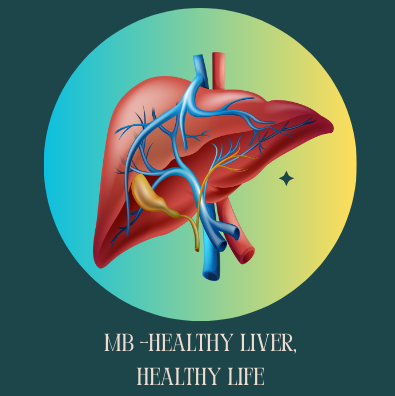3- Major Negative Impact of Fatty Liver Disease and Beyond: Exploring the Journey to Longer Life Expectancy”
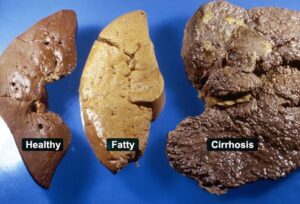
Fatty Liver Disease Prevention is needed today’s date Our bodies are amazing machines, able to carry out complex functions and processes that keep us alive and healthy. The liver is one of the vital organs in charge of preserving our general health. However, a number of circumstances can prevent it from operating at its best, which can result in diseases like fatty liver disease. In this post, we will examine how treating fatty liver disease can lead to a longer lifespan as we go deeper into the subject.
1) Learning About Fatty Liver Disease:
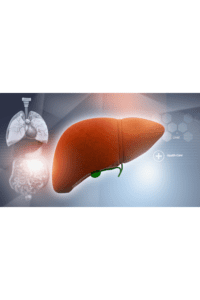
Fatty Liver Disease, whose other name is Hepatic Steatosis, is a disorder in which extra fat builds up in the liver cells. The liver’s capacity to carry out essential tasks, including removing toxins from the blood, metabolizing nutrients, and making proteins, may be hampered by this buildup of fat. Alcoholic fatty liver disease (AFLD) and non-alcoholic fatty liver disease (NAFLD) are the two main varieties of fatty liver disease. The Association of Fatty Liver with Life Expectancy
2) Fatty Liver Disease Correlations with Life Expectancy
Fatty liver disease’s effect on life expectancy is a subject that worries medical professionals more and more. Even though a minor form of the illness might not be harmful right away, it might worsen over time and could result in more serious consequences. Obesity, type 2 diabetes, high blood pressure, and high cholesterol are all risk factors for cardiovascular illnesses, and NAFLD in particular is closely linked to fatty liver disease. If these Fatty Liver Disease health issues are not effectively handled, they can have a major impact on life expectancy
3) Fatty Liver Disease: Investigating the Factors Below:
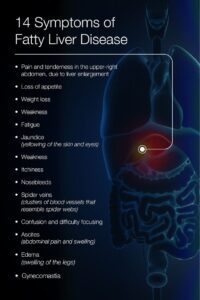
The association between fatty liver disease and life expectancy is influenced by a number of factors, including:
a) Disease Progression in Fatty Liver Disease: Non-alcoholic steatohepatitis (NASH), which is characterized by inflammation and liver cell destruction, can develop from simple steatosis in fatty liver disease. NASH can then result in fibrosis and cirrhosis, which are severe liver disease stages linked to an increased risk of liver failure and a shorter life span.
b) Metabolic Health in Fatty Liver Disease: Metabolic health and fatty liver disease are closely related. NAFLD is more likely to develop in people with obesity, insulin resistance, and metabolic syndrome. Altering one’s lifestyle in order to address these underlying metabolic problems can prolong life and have a good effect on the liver.
- c) Cardiovascular Risk in Fatty Liver Disease: As mentioned earlier, the link between fatty liver disease and cardiovascular risk factors is significant. Heart disease and stroke are the leading causes of fatty liver disease.
- causes of mortality worldwide. By managing fatty liver disease and its associated risk factors, individuals can potentially reduce their risk of cardiovascular events and increase their life expectancy.
4) In Fatty Liver Disease, Taking Steps Towards Longer Life Expectancy:
The journey towards a longer life expectancy for individuals with fatty liver disease requires a multi-faceted approach. Here are some strategies to consider:
- A) Lifestyle Modifications and Changes Needed in Fatty Liver Disease: Adopting a healthy lifestyle is paramount. Regular exercise, a balanced diet rich in fruits, vegetables, and whole grains, and weight management can improve metabolic health and contribute to better liver function.
- B) Medical supervision is important in fatty liver disease. Regular medical check-ups and consultations with healthcare professionals are crucial for monitoring the progression of fatty liver disease. They can provide personalized guidance and interventions based on individual health profiles.
- C) Managing Underlying Conditions Of Fatty Liver Disease Very Essential: Addressing co-existing conditions like obesity, diabetes, and hypertension is essential. Effective management of these conditions can positively impact liver health and life expectancy.
- D) Avoiding Alcohol and Harmful Substances Very Important: For individuals with alcoholic fatty liver disease, eliminating or reducing alcohol consumption is vital. Additionally, avoiding substances that can harm the liver, such as certain medications and recreational drugs, is crucial.
E) Improving mental health is also important in fatty liver disease. Emotional health is important for good physical and mental health, specifically in fatty liver disease. A better quality of life can be achieved by seeking help through therapy, support groups, or counseling, as chronic diseases can have a negative impact on mental health.

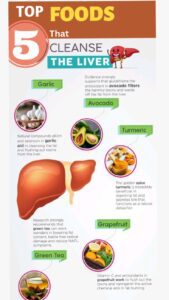
5) Fatty Liver Disease Conclusion:
“Fatty Liver Disease and Beyond: Exploring the Journey to Longer Life Expectancy” emphasizes how crucial it is to comprehend and treat fatty liver disease if one wants to increase life expectancy. People can actively enhance their general well-being by understanding how fatty liver disease, metabolic health, and cardiovascular risk are related. Keep in mind that this journey toward a longer and healthier life expectancy requires early intervention, lifestyle changes, medical supervision, and emotional support.
 https://analytics.google.com/analytics/web/#/analysis/p405220706
Skip to content
https://analytics.google.com/analytics/web/#/analysis/p405220706
Skip to content 